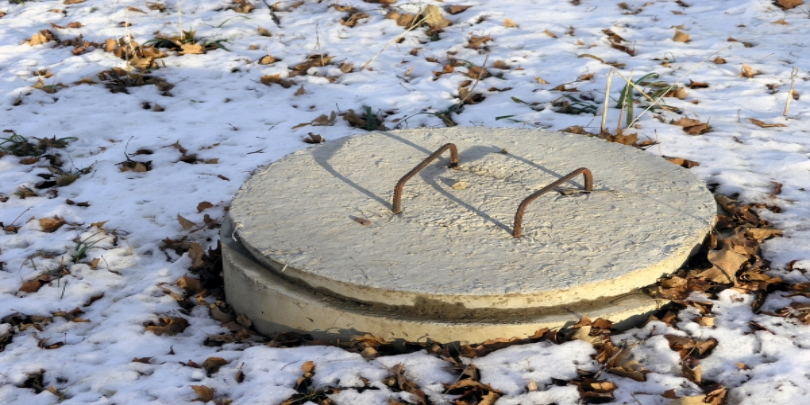
Septic systems treat residential wastewater in areas without municipal sewer systems. Buried underground, they use technology, nature, and gravity to break down water and waste that comes from sinks, showers, garburators, toilets, and washing machines. All the wastewater goes into the septic tank where liquids flow into a leach field and the solids settle to the bottom of the tank. It’s a great system for people who live in rural areas, until something goes wrong.
With the extreme cold we see in some parts of Canada, a common question the team at Mr. Rooter® Plumbing gets is, will a septic tank freeze? The answer is yes, it’s possible for septic tanks to freeze!
When Will a Septic Tank Freeze?
Guidelines for septic tanks generally ensure they are buried deep enough to prevent freezing. However, when conditions are just right, your septic tank can freeze. The frost line is a big factor in whether a septic tank will freeze. In Canada, the frost line varies from half a metre to several metres, depending on location. If the tank is buried above the frost line, it’s especially vulnerable to the cold. Other things that can lead to freezing include:
- If the tank isn’t buried deep enough, it won’t be protected from cold temperatures.
- When the soil above a tank is compacted or washes away over time, the deteriorated soil provides less insulation from the cold.
- Frozen pipes leading from your home to the tank can prevent warm water from flowing into the tank, allowing the contents to freeze.
- Limited plumbing system use can lead to freezing. The consistent flow of water into the tank helps keep the contents warm. If you’re out of town or gone for long periods of time during the day, the lack of use of your septic system could lead to freezing.
- Shoveling the snow that covers your septic system can lead to freezing. Believe it or not, snow is a great insulator and can help protect your system from frigid temperatures.
- A particularly long cold snap can cause freezing in all kinds of plumbing, including septic tanks.
Related Topic: How Long Should a Septic System Last?
Frozen Septic Tank Solutions
It’s tempting to want to fix a frozen septic tank yourself. It seems easy enough to add some chemicals or pour hot water down the drains, or some other fix that shows up on YouTube. A word of caution about DIYing your septic tank thaw—it could make the problem worse or introduce a whole new set of issues. Your best course of action to resolve a frozen septic tank is to call a licensed plumber for assistance.
Here’s what NOT to do if your septic tank freezes:
- Don’t add antifreeze to the tank.
- Don’t try to pump out the tank yourself.
- Don’t light a fire on top of the septic tank.
- Don’t attempt to fill the tank with hot water.
Need Help with Your Frozen Septic Tank?
If you suspect you have a frozen septic tank, the first and most important step you should take is to call in an experienced professional. An inspection to assess the issue and confirm freezing, as well as the tools to safely thaw your tank should only be done by a plumber with the knowledge and training to do it right. The team at Mr. Rooter Plumbing is standing by to thaw your septic tank and give you tips to prevent it from freezing in the future. Call us or request an estimate online for septic tank services.

